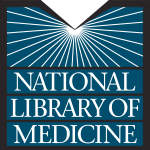- Branża: Library & information science
- Number of terms: 152252
- Number of blossaries: 0
- Company Profile:
The National Library of Medicine (NLM), on the campus of the National Institutes of Health in Bethesda, Maryland, is the world's largest medical library. The Library collects materials and provides information and research services in all areas of biomedicine and health care.
Destroying or inhibiting the growth of microorganisms and especially pathogenic microorganisms.
Industry:Medical
1) General term for a number of inherited defects of amino acid metabolism in which there is a deficiency or absence of pigment in the eyes, skin, or hair.
2) A genetic condition marked by little or none of the pigment melanin in the skin, hair, and/or eyes. People with albinism may have vision problems and white hair, pink or blue eyes, and pale skin.
Industry:Medical
1) Antisense is the non-coding DNA strand of a gene. A cell uses antisense DNA strand as a template for producing messenger RNA (mRNA) that directs the synthesis of a protein. Antisense can also refer to a method for silencing genes. To silence a target gene, a second gene is introduced that produces an mRNA complementary to that produced from the target gene. These two mRNAs can interact to form a double-stranded structure that cannot be used to direct protein synthesis.
2) Nucleic acid that has a sequence exactly opposite to an mRNA molecule made by the body; binds to the mRNA molecule to prevent a protein from being made.
Industry:Medical
The outer layer of the adrenal gland. It is derived from mesoderm and comprised of three zones (outer zona glomerulosa, middle zona fasciculata, and inner zona reticularis) with each producing various steroids preferentially, such as aldosterone; hydrocortisone; dehydroepiandrosterone; and androstenedione. Adrenal cortex function is regulated by pituitary adrenocorticotropin.
Industry:Medical
Having the centromere situated so that one chromosomal arm is much shorter than the other.
Industry:Medical
Substances whose aqueous solutions are characterized by a sour taste, the ability to turn blue litmus red, and the ability to react with bases and certain metals to form salts; yields hydrogen ions when dissolved in water, acts as a proton donor, and can accept a pair of electrons to form a covalent bond.
Industry:Medical
1) Fixation and immobility of a joint.
2) Stiffness or fixation of a joint by disease or surgery.
Industry:Medical
1) Mood-stimulating drugs used primarily in the treatment of affective disorders and related conditions.
2) A drug used to treat depression.
Industry:Medical
